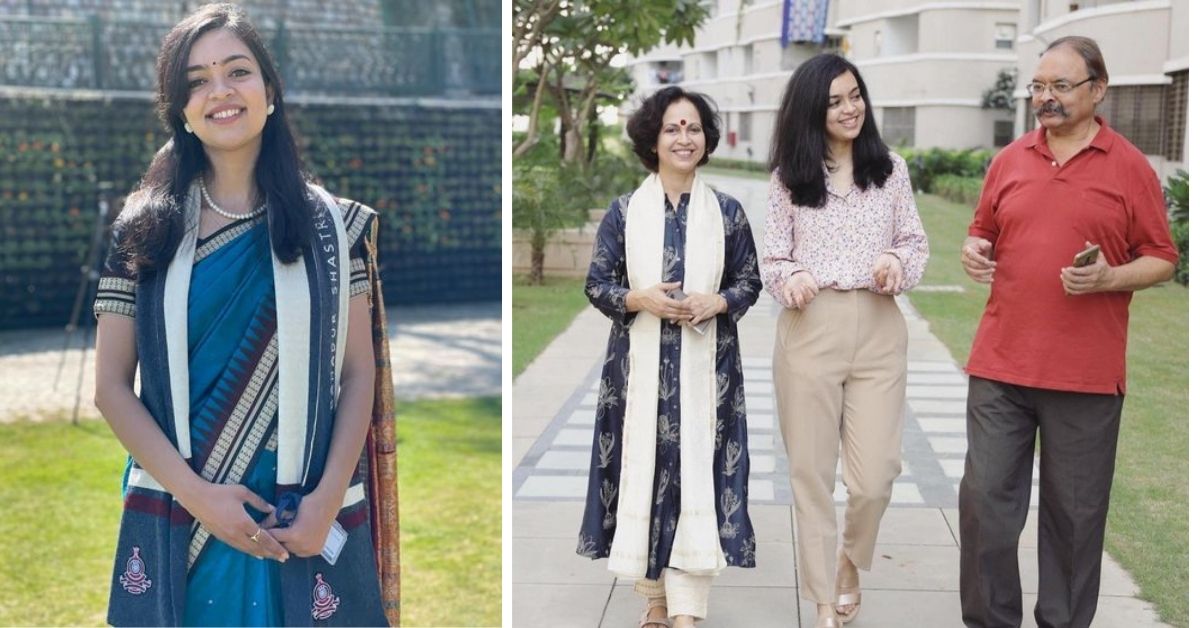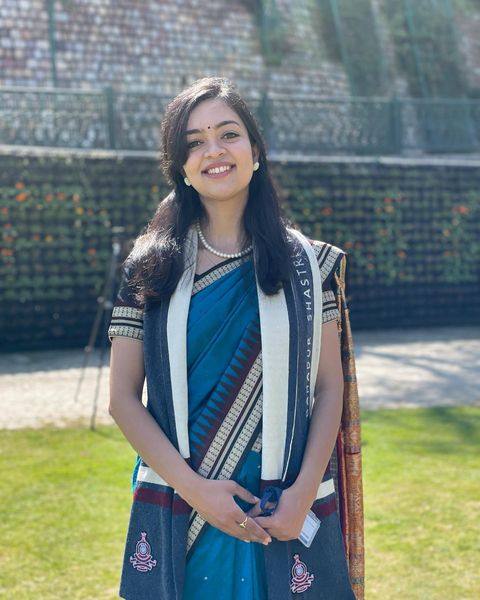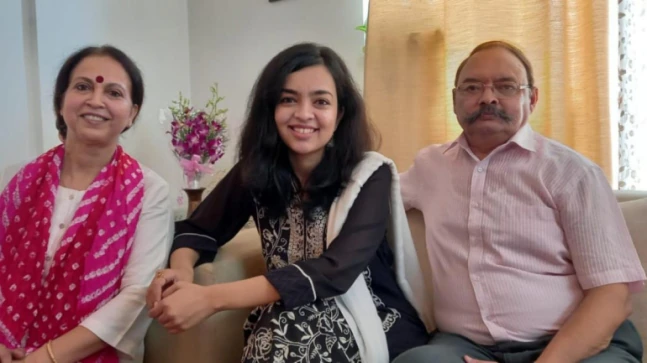How I Cleared UPSC CSE With Highest Marks in Interview: IAS Apala Mishra
IAS officer Apala Mishra secured AIR 9 in UPSC CSE and got the highest marks in the interview round. Here, she shares how she aced the exam, especially the Personality Test.

Dr Apala Mishra secured an All India Rank (AIR) of 9 in her third attempt at the Union Public Service Commission’s (UPSC) Civil Service Examination (CSE).
From not clearing the prelims in her first two attempts to securing the highest-ever marks in the personality round, 27-year-old Dr Apala has had an inspiring journey.
Having spent the majority of her growing up years in Dehradun and Delhi, Dr Apala pursued a degree in dental surgery (BDS) from Hyderabad.

After having completed her BDS degree she chose to start preparing for CSE.
Speaking to The Better India, she says, “Being a part of UPSC provides one with a vast canvas to work for the public. It also offers very unique and diverse work opportunities, which other professions do not.”
Her preparatory journey began towards the end of 2017. Having secured a score of 215, which ranks amongst the highest so far in the personality round, Dr Apala shares a few tips with future aspirants.
1. Not Just a Show of Personality:
“One of the biggest myths is that you don’t need to prepare for the interview round as it will only test your personality. However, we need to understand that knowledge, too, forms the basis of our personality. It requires equal amounts of work that one puts in at the prelims and mains stage,” says Dr Apala.
2. Know Your Detailed Application Form (DAF):
One of the most important things to remember for the personality round is the DAF. Dr Apala says, “Ensure that you put in only those attributes and strengths that you wish to highlight in the DAF. Do not put down any achievement or hobbies that you cannot explain in your DAF. The interviewers are likely to see through it. Revise whatever you have mentioned in your DAF and have answers to everything you put down.”
3. Refrain From Bluffing:
“First and foremost, always stay calm through your interview. If there is a question to which you do not know the answer, refrain from bluffing. It is perfectly alright to mention that you do not know the answer or anything about the topic. That honesty will be appreciated rather than bluffing your way through,” says Dr Apala. While doing this, always be polite to the interviewers on the panel.
4. Be Ready to face ‘Googlies’:

“When you are asked a question that you were not expecting, take a few seconds to process it before you formulate your response,” says Dr Apala, adding that during her interview round, she was wearing a saree, the border of which had warli painting. She was asked about the painting – which region the art belongs to? Some details about the tribe that does this art? How much does it cost? “The basic thing to remember is to have a good understanding of yourself,” she adds.
4. Know Yourself:
Besides having a good understanding of general knowledge and subject-wise knowledge, Dr Apala urges aspirants to spend time knowing themselves. Explaining this, she says, “Be aware of the meaning your name signifies. Have details about the city and state you were born in or belong to. If there are some unique festivals or cultural events that your city/state celebrates, be aware of them. Do not leave any stone unturned about understanding yourself.”
5. Prepare for The Interview:
Finding a way to hear your answers might be beneficial while preparing for the interview stage. While some aspirants prefer standing before a mirror and answering for practice, Dr Apala says that recording herself and playing it back helped. “I would also discuss various topics with my parents over dinner. During these conversations, I would pick up on important points to be kept in mind. This helped overcome my introverted nature.” She also adds that one can practice with anyone, not necessarily someone associated with UPSC.
6. Set Time Aside for Preparation:
Dr Apala set aside close to three months for the interview preparation.
Asked whether the learning ever gets repetitive or boring, Dr Apala says, “For the interview stage there is so much to go through that there will never be a moment where you feel the learning is repetitive or boring. For example, if I am from Delhi, there will always be something to learn and retain about the place. Food, language, people, history, etc.” Three months for the interview is optimal, she adds.
(Edited by Yoshita Rao)
If you found our stories insightful, informative, or even just enjoyable, we invite you to consider making a voluntary payment to support the work we do at The Better India. Your contribution helps us continue producing quality content that educates, inspires, and drives positive change.
Choose one of the payment options below for your contribution-
By paying for the stories you value, you directly contribute to sustaining our efforts focused on making a difference in the world. Together, let's ensure that impactful stories continue to be told and shared, enriching lives and communities alike.
Thank you for your support. Here are some frequently asked questions you might find helpful to know why you are contributing?













